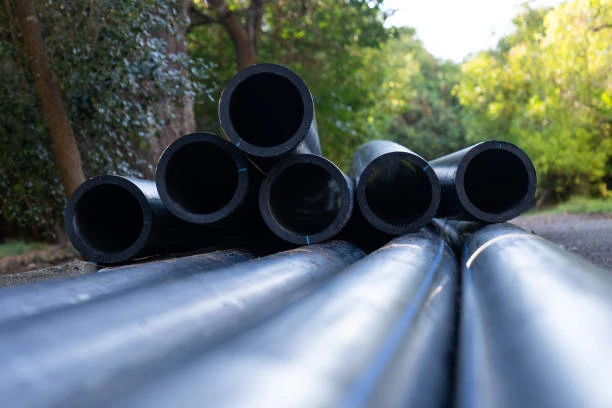The construction of a new HDPE pipe factory in Kenya marks a significant development for the country’s infrastructure and manufacturing sector. As the demand for reliable piping solutions continues to rise, this factory aims to meet both local and regional needs, particularly focusing on pipe press fittings.

The Importance of HDPE Pipes
HDPE pipe are renowned for their strength, durability, and flexibility, making them an ideal choice for various applications, including water supply, sewage, and industrial processes. Their ability to withstand high pressures and resist corrosion makes them a preferred material in many construction projects.
Key Benefits of HDPE Pipes
- Longevity: HDPE pipes can last over 50 years with minimal maintenance, making them a cost-effective solution in the long run.
- Resistance to Chemicals: These pipes can handle a wide range of chemicals, making them suitable for industrial applications.
- Environmental Impact: HDPE is 100% recyclable, aligning with global sustainability goals.
- Flexibility: The flexibility of HDPE allows for easy installation, particularly in challenging terrains.
- Reduced Installation Costs: The lightweight nature of HDPE pipes simplifies transport and installation, further reducing costs.
The Role of Pipe Press Fittings
To ensure the effectiveness of HDPE piping systems, the use of high-quality pipe press fittings is crucial. These fittings facilitate secure and reliable connections between different sections of piping.
Types of Pipe Press Fittings
- Elbows: Used to change the direction of the pipeline, elbows are essential in guiding the flow of liquids and gases.
- Tees: These fittings allow for branching the pipe, creating multiple flow paths.
- Reducers: They connect pipes of varying diameters, maintaining optimal flow.
- Couplings: Couplings are used to join two pipes together, ensuring a seamless transition.
- Caps: Used to seal the ends of pipes, caps prevent leakage and contamination.
Advantages of Using Pipe Press Fittings with HDPE
- Ease of Installation: Press fittings can be installed quickly without the need for welding, significantly reducing labor costs and time.
- Reliability: High-quality fittings ensure a tight seal, minimizing the risk of leaks.
- Versatility: Compatible with various pipe materials, press fittings provide flexibility in design and installation.
- Maintenance-Free: The combination of HDPE pipes and press fittings leads to lower maintenance requirements, enhancing system reliability.
The Impact of the New Factory
The establishment of an HDPE pipe factory in Kenya will have multiple benefits for the local economy and infrastructure development.
Local Economic Growth
This factory is expected to create numerous job opportunities, ranging from skilled labor to management positions. By sourcing materials locally, the factory will also stimulate the regional economy and promote entrepreneurship in the area.
Improved Infrastructure
With a reliable supply of HDPE pipes, Kenya can enhance its infrastructure projects, including water supply systems, drainage, and transportation of fluids. Improved infrastructure is critical for economic development and public health.
Regional Supply Chain
The new factory will not only serve Kenya but could also supply neighboring countries, strengthening regional trade and collaboration. This position will help reduce dependency on imported pipes, fostering self-sufficiency.
Commitment to Sustainability
The construction of the HDPE pipe factory aligns with global sustainability initiatives. By focusing on eco-friendly materials and processes, the factory will contribute to reduced environmental impacts. This commitment to sustainability resonates well with both consumers and businesses seeking environmentally responsible options.
Innovations in Manufacturing
In addition to producing high-quality HDPE pipes, the factory will adopt modern manufacturing technologies that enhance efficiency and reduce waste. This focus on innovation is essential for meeting the increasing demands of the industry.
Conclusion
The construction of the HDPE pipe factory in Kenya represents a pivotal moment for the nation’s infrastructure and manufacturing landscape. By providing durable and reliable piping solutions, including high-quality pipe press fittings, this factory will play a crucial role in supporting economic growth and enhancing public infrastructure. The combination of local production and sustainability initiatives positions Kenya as a leader in the HDPE market in the region.
FAQs
- What are HDPE pipes used for? HDPE pipes are used for various applications, including water supply, sewage systems, gas distribution, and industrial processes.
- What are pipe press fittings? Pipe press fittings are connectors that join different sections of piping, ensuring a secure and leak-proof connection.
- How long do HDPE pipes last? HDPE pipes typically have a lifespan of over 50 years, depending on usage and environmental factors.
- Are HDPE pipes environmentally friendly? Yes, HDPE pipes are recyclable and contribute to reduced environmental impact compared to traditional materials.
- Can pipe press fittings be used with other types of pipes? Yes, pipe press fittings are versatile and can be used with various materials, including metal and plastic pipes, depending on the application.


















